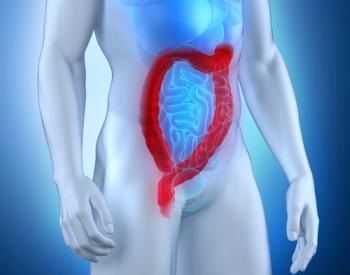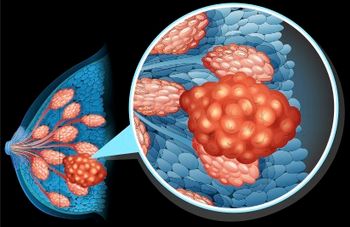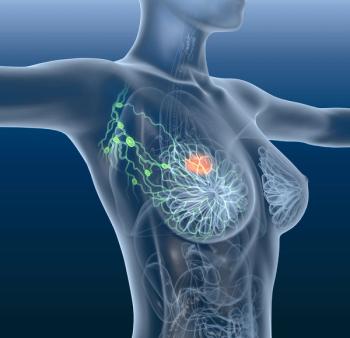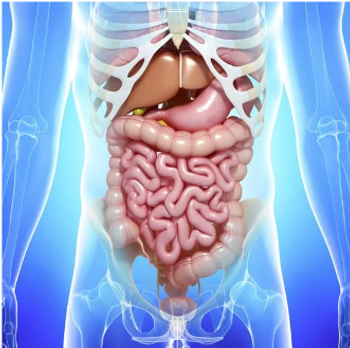
The use of chemotherapy trended toward improved recurrence-free intervals in older patients with high-risk tumors as determined via the MammaPrint assay.

Your AI-Trained Oncology Knowledge Connection!


The use of chemotherapy trended toward improved recurrence-free intervals in older patients with high-risk tumors as determined via the MammaPrint assay.

At a median follow-up of 17.0 months, the sintilimab/chidamide regimen elicited 1-year PFS and OS rates of 95.7% and 95.3%, respectively.

The combination elicited a clinical benefit rate of 63.0% and an overall response rate of 22.2% in anti–PD-L1–refractory melanoma with melanoma brain metastases.

Efficacy across most patient subgroups appeared to be consistent with relatlimab/nivolumab vs ipilimumab/nivolumab in patients with advanced melanoma.

Findings support the established safety profile of lisocabtagene maraleucel across hematologic oncology indications.

Cisplatin, nab-paclitaxel, gemcitabine, and capecitabine significantly improved EFS vs mFOLFIRINOX in resectable or borderline resectable pancreatic ductal adenocarcinoma.

Results from the KRYSTAL-7 trial showed that efficacy was improved with adagrasib/pembrolizumab for KRAS G12C-mutated NSCLC.

Five-year follow-up confirms adjuvant nivolumab's sustained disease-free and distant metastasis-free survival benefits in resected esophageal/GEJ cancer post-CRT.

A post hoc analysis of NAPOLI-3 reveals clinical characteristics and treatment strategies associated with long-term survival in patients with metastatic PDAC treated with NALIRIFOX.

No fatalities were observed with fruquintinib plus camrelizumab, paclitaxel liposome, and nedaplatin when treating esophageal squamous cell carcinoma.

Results from the ATOMIC trial found a 50% reduction in the risk of death for patients with dMMR colon cancer receiving atezolizumab/chemotherapy.

Camizestrant and continued CDK4/6 inhibition delayed time to QOL deterioration vs SOC therapy in ER+/HER2– advanced breast cancer.

Data from the MATTERHORN trial may be “practice-changing” in the management of resectable gastric or gastroesophageal junction adenocarcinoma.

Results from the NIVOPOSTOP trial found improved DFS with adjuvant nivolumab plus cisplatin and RT for patients with LA-SCCHN.

Patients who received ipatasertib/fulvestrant in the intention-to-treat population achieved a median PFS of 5.32 months compared with 1.94 months in the placebo arm.

In the phase 3 DESTINY-Breast06 trial, the overall biomarker-evaluable population’s confirmed ORR was 59.4% with T-DXd vs 33.9% with chemotherapy.

Sasanlimab plus BCG significantly improved event-free survival in BCG-naïve, high-risk NMIBC patients, with notable benefit in carcinoma in situ and T1 tumors.

Amivantamab/chemotherapy remained efficacious regardless of the osimertinib resistance mechanism for patients with EGFR-mutated NSCLC.

After a median follow-up of 31.2 months, the objective response rate was 97.4% among patients with CLL/SLL.


Across all 3 treatment arms, global health status/quality of life and functional domains were maintained in the phase 3 EMBER-3 trial.

As a single agent or in combination, MK-1084 showed promising efficacy and safety results for patients with KRAS G12C–mutated CRC.

With longer-term follow-up, investigators observed no new safety signals for zanubrutinib in patients with CLL or SLL harboring 17p deletions.

Use of a pharmacist-directed resource appears to improve provider confidence and adverse effect monitoring for patients undergoing infusion therapy.

Treatment with KITE-363 yields no dose-limiting toxicities in a first-in-human phase 1 study.

Emergent alteration patterns were similarly diverse across treatment arms in the phase 3 CodeBreaK 300 study.

The median PFS was 54.1 months with nivolumab/ipilimumab vs 5.9 months with chemotherapy in patients with MSI-H/dMMR CRC.

Anlotinib/chemotherapy showed comparable efficacy vs bevacizumab/chemotherapy in patients with RAS/BRAF wild-type metastatic colorectal cancer.

T-DXd rechallenge occurred after grade 1 ILD, and was proven safe for patients with breast cancer/solid tumors.

Escalated adjuvant chemotherapy did not improve recurrence-free survival in patients with stage III colon cancer when using a ctDNA-informed approach.